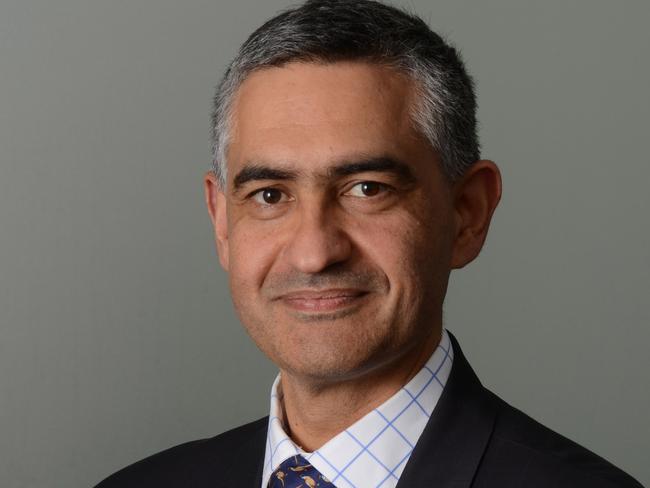Hospo industry is struggling, but how many new fees and charges can consumers take?
A “standard” fee to warm a muffin at a Melbourne cafe has reignited debate over the state’s beleaguered hospitality sector — and whether eateries are now hitting consumers with secret charges.
Victoria
Don't miss out on the headlines from Victoria. Followed categories will be added to My News.
Victorians are divided on whether the hospitality industry is within its rights to charge an increasing swag of surcharges to cover rising energy, bank, raw ingredient and rent costs — with consumers sick of the slugs but the struggling sector defending its actions.
Many Victorians have taken to social media in recent months to complain about hefty weekend and public holiday restaurant surcharges, fees for processing credit card payments and, most recently, a reheating fee for warming up muffins.
On Monday it was reported a young man was taken by surprise when he discovered he had been charged a $1 “standard” heating fee for the $7 muffin he had ordered to have with a coffee at a Melbourne cafe.
“They just add it to the bill without telling you,” he was reported as saying on Facebook, adding he would have had the muffin cold if he had known he would be charged for its warming.

The man’s Facebook post attracted more than 1000 reactions and 850 comments before it was deleted.
Most people were as shocked as the man who posted at what appeared to be a new, hidden cafe fee.
It comes as an increasing number of Victorian restaurants and cafes charge extra on weekends and public holidays, to cover the cost of staff penalty rates.
Critics were quick to call the move “bloody outrageous” and claim they avoid dining at establishments with weekend surcharges.
However, Chunky Town said the surcharges were essential for keeping its doors open and still “doesn’t even nearly cover the penalty rates on weekends”.
Chunky Town marketing director Adam Ong said the surcharges were introduced two years ago.
“With rising costs and the higher award wages on weekends and public holidays our business definitely had to increase its prices somehow in order to survive,” he said.
“We tossed up whether we should increase our prices across the board, or keep prices the same but add a surcharge on the days it costs more to operate.”

Eateries, pubs and retailers are also increasingly adding automatic surcharges to customers’ bills to cover fees from payment providers.
The decline of cash payments since the pandemic means more customers are being slugged with these increased fees.
In April, the Herald Sun reported Victorian restaurant bills had skyrocketed by nine per cent in a year, nearly triple the rise in New South Wales, Queensland and Tasmanian venues.
Only South Australia saw a bigger increase than Victoria in average restaurant bills during the 12 months from March 2023 to March 2024, with an 11 per cent rise.
Meanwhile, the average bill in Northern Territory, Western Australia and ACT restaurants did not increase at all.
Like Victoria, Western Australia had extremely harsh Covid restrictions at the peak of the pandemic.
Lightspeed data showed that while South Australia had the highest average restaurant bill of all the states — with diners spending about $63 — Victoria’s average bill stood at $52.52 in March 2024, compared to $50 in Queensland, $50.66 in NSW, $44 in WA, $43.79 in the ACT and just $33.38 in the NT.
Victoria also had the second highest average bill increase over 12 months, in the nation
It came as Melburnians were warned they should be prepared to pay as much as $50 for a main meal in the city’s restaurants and $5.50 minimum for a regular flat white, with one South Melbourne cafe already charging $6.50.

But a hospitality chief told the Herald Sun recently that the industry was not profiteering.
Restaurant and Catering Australia chief Suresh Manickam said at the time he was unsure why Melbourne restaurant prices had risen more than most other states in the past year, “but it may be as simple as Victoria (having) higher cost of living pressures than other states, proportionally”.
Restaurants across the country had seen big increases in their operating costs over the past year, he said.
“If you think of things like energy and energy use — and these guys are very large consumers of energy — that has gone up. The cost of labour has gone up since this time last year also and we have an absolute skills shortage, so that’s having an impact in terms of securing labour and cost of labour,” Mr Manickam said.
Rents and the cost of produce had also increased, he said.
“So all these things combined means there is an overall increase in terms of costs,” Mr Manickam said.
“None of our sector is profiteering off this, they are just simply passing on the costs of doing business.”




